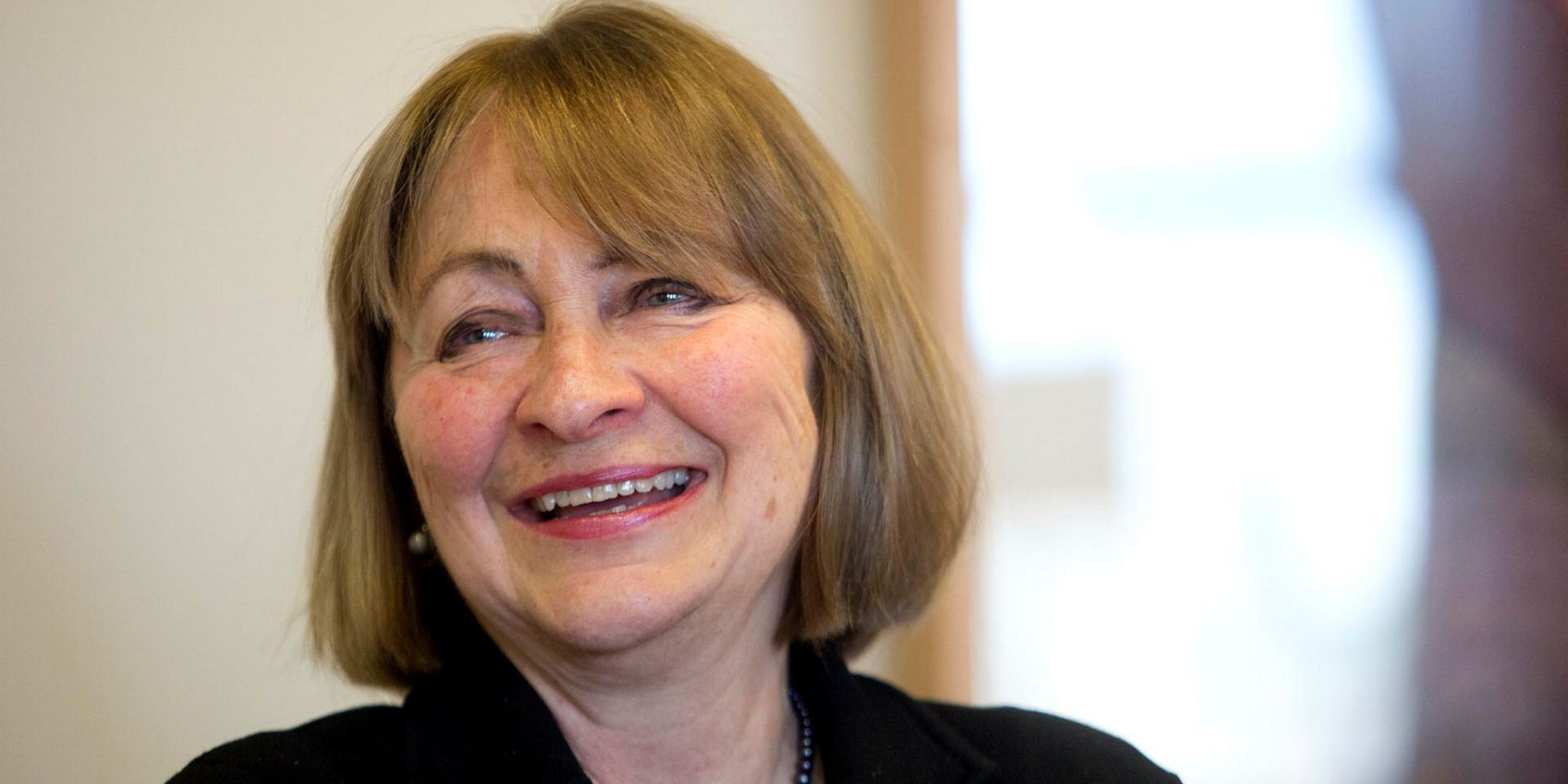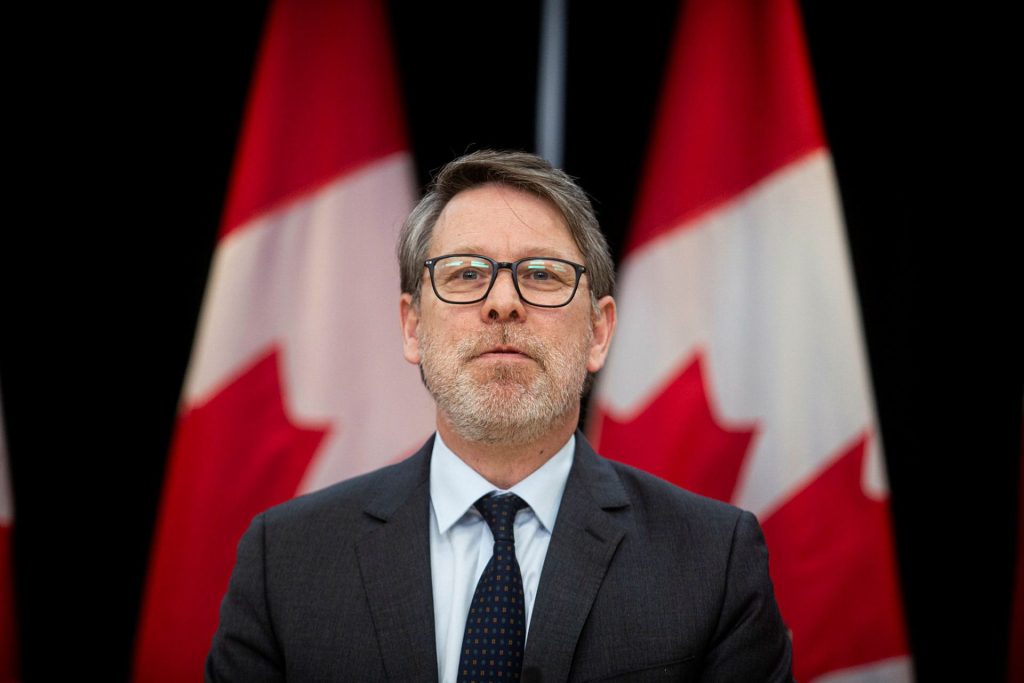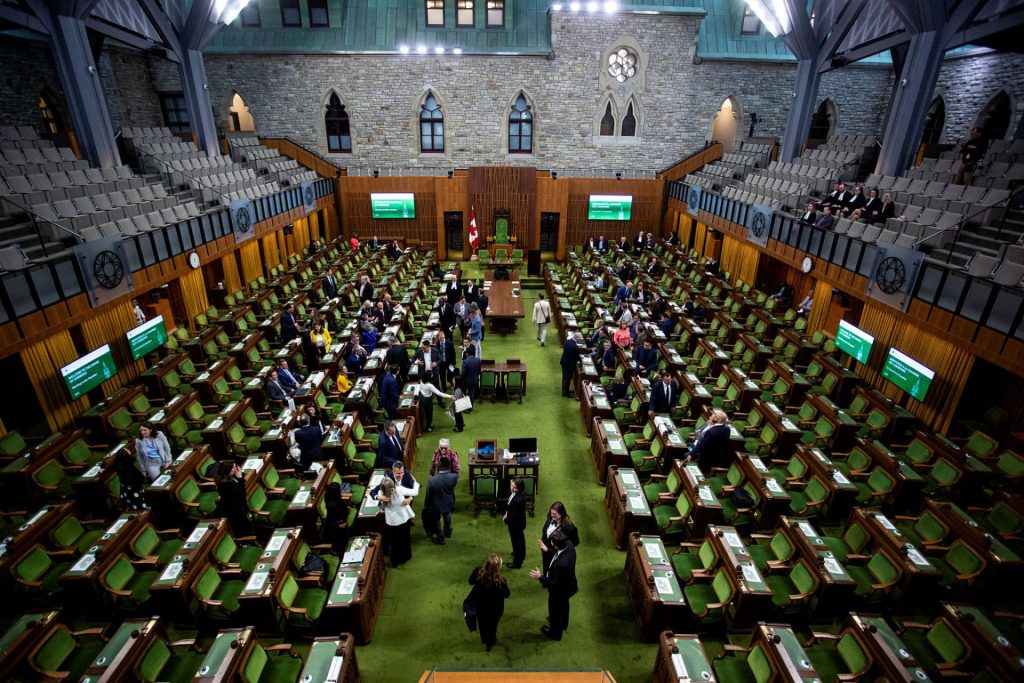Senator Dasko pitches elections law reforms to address enduring issue of candidate diversity

Ontario ISG Senator Donna Dasko has revived her bid to reform election rules to encourage political parties to do more to ensure diversity in their candidate slates, and hopes the setbacks seen this past election will help spur her legislation across the finish line this Parliament.
A previous iteration of Dasko’s bill stalled at second reading in the Senate after being introduced in December 2023.
“What’s happened in this past election with the declining number of women nominated, I think this is a turning point,” Dasko told The Hill Times. “I’m hoping that this election serves as a warning signal that we need to do something about this; we need to do more.”
On May 6, Equal Voice highlighted a slight decrease in the proportion of women and gender-diverse MPs elected to the House of Commons, dropping from 30.5 per cent elected in 2021 to 30.03 per cent. In 2021, 103 such MPs were elected—reaching 106 at the time of dissolution, or 31.4 per cent of the House.
Recount results announced since May 6 have brought the total number of women MPs elected this year to 104—or 30.3 per cent—of the now-343-member Chamber.
According to Equal Voice, three out of four major federal parties also nominated a smaller share of women candidates compared to the 2021 election.
Some parties did better than others: the Liberal and NDP caucuses both saw increases in their proportions of women or gender-diverse MPs—from 35.6 per cent to 39.6 per cent for the Liberals, and 44 per cent to 57.1 per cent for the NDP—while the Conservatives dropped slightly from 18.5 per cent to 18.1 per cent, and the Bloc Québecois less slightly at 22.7 per cent compared to 37.5 per cent in the previous Parliament.
A May 30 Policy Options piece co-authored by researchers Jerome Black and Andrew Griffith similarly highlighted how candidate diversity efforts “stalled” for certain groups—namely women, LGBTQ candidates, and Indigenous people—this past election.
The slight decrease in female representation in the House “proves” that such progress can’t be expected to come naturally, said Dasko, a co-founder of Equal Voice. “There needs to be a focus on it; the parties have to take action to make sure it happens, otherwise it won’t.”
Tabled on May 28, Bill S-213 proposes amending the Canada Elections Act to require registered political parties to publish information online regarding: rules for candidate selection; any programs or policies implemented to try to achieve “greater diversity” in candidate selection, and a description of them and how they relate to identified groups; a description of measures taken to implement such programs and policies, “including whether the party requires formal search committees” in selecting candidates; a description of how the effectiveness of such measures will be assessed; and a description of the party’s “cumulative progress” in achieving such objectives.
Specifically in terms of female candidates, registered parties would also have to make public online a statement of their plan for established targets for the nomination of female candidates, any rules governing the nomination of female candidates in riding where a sitting MP isn’t expected to run again or where the previous candidate came within a vote margin of 10 per cent or less, and a description of progress made in meeting such targets.
If no such policies, programs, or rules exist, parties would have to “instead maintain a statement setting out its reasons for not” having any, “and must include a proposed timeline, if any, for its adoption.”
Failure to make public the above policies, programs, and rules—and failure to publish party contact information for someone to whom concerns about such obligations can be addressed—would open up parties to potential deregistration, as per the procedure for non-voluntary deregistration outlined in Section 415 of the existing act.
Parties have to be registered with Elections Canada in order to do a number of things, including issuing tax receipts and receiving voter lists.

Bill S-213 additionally proposes amending the Act to direct the Chief Electoral Officer (CEO) to send voluntary self-identification questionnaires to nomination, leadership, and general election candidates in order to collect disaggregated demographic data. The CEO would then produce a report on the data collected—which would be “anonymized”—to be submitted to the House Speaker.
Dasko noted that such data collection is something the CEO called for in a June 2022 report reflecting on the 2019 and 2021 federal elections, which highlighted Elections Canada’s current lack of a “clear legislative mandate to collect demographic information about electoral participants.”
“Many groups are under-represented in the House of Commons, and the reasons for this are complex. There can be little doubt about the value of working toward a Parliament that reflects the true diversity of Canadian society; but that work must start with high-quality information,” reads the report.
The issue of gender diversity in elected politics is one Dasko has been active on for decades, going back to 1988 when she joined a group called the Committee for ‘94, which sought to get women’s representation in the House to 50 per cent by 1994.
Currently, the Inter-Parliamentary Union ranks Canada 70th in the world in terms of female representation in Parliament, noted Dasko.
“I look at this and I say, ‘this is needed more than ever,’” she said.

Dasko said her bill takes a “building-block approach” to the issue, and is by no means “radical.”
“It doesn’t go places that other countries have gone with quotas and timetables and sanctions; it takes a kind of a first step to highlighting, to making the parties accountable,” she said.
The idea is that, by asking parties to disclose such information, it will prompt them to take such efforts “seriously,” said Dasko.
“We’ve taken this approach with corporations and companies in Canada … and if we can require this of public corporations, certainly political parties should be held accountable and be transparent in this way,” she said, referencing the Employment Equity Act.
During the previous Parliament, Dasko said her bill got “positive responses” from a “number” of female MPs from different parties—although outreach to each of the registered parties themselves elicited no response. Recognizing that political parties have proven reluctant to take outside direction on internal processes, Dasko said “we will see how they’ll greet this.”
Asked about potential backlash to such proposals coming from a non-partisan Senator, Dasko said Canadian democracy is something “every citizen in this country” should be concerned about. “We have every right to take actions in this area to make our systems work better.”
While she said she hopes to see second reading debate on her bill wrapped up by this fall, Dasko noted that last Parliament saw “frustrations” over the advancement—or lack thereof—of Senate public bills, with debate continually adjourned, “mainly by the [Conservative] opposition.”
“Not exactly sure if the situation is going to be different this time—we hope so, in this Parliament—but we’ll see,” she said.
A ‘baby step’ forward
Experts who spoke with The Hill Times offered mixed reviews of Dasko’s bill, describing it as a “baby step” forward, or as a “good faith” but watered-down attempt to address an already well-known problem in Canadian politics.
The “laissez faire” approach taken to boosting diversity in Canadian politics to date “hasn’t really worked,” and research into why points squarely “in the direction of political parties,” said Carleton University associate professor Erin Tolley, Canada Research Chair in Gender, Race, and Inclusive Politics
“So this bill tries to prompt action, either through encouragement or even, in some cases, more of a stick approach,” said Tolley.

S-213’s “effort to institutionalize” the collection of demographic data on candidates—in particular in terms of nomination candidates, as such races are “where the [diversity] bottleneck begins”—offers a positive step forward in ongoing efforts by academics and journalists to analyze “the composition of candidate slates and elected institutions,” she said, as what isn’t measured, can’t be modified.
But one area where Tolley said she wishes the bill went further is in terms of broader—not gender specific—diversity. “There has been a tendency when we have these conversations about diversification to focus on gender, and assume that if we figure out the gender piece, all of the other diversities will follow. The research suggests that’s not really the case,” she said. “When we focus on diversity in this sort of aggregate or generic way, the primary beneficiaries tend to be white women, often to the exclusion of other groups.”
Still, recognizing the “balancing act” in play in regulating political parties, Tolley said she sees the bill as a “baby step” forward.
“This bill is trying to walk a middle ground between reticent or even hostile political parties [to outside input on internal processes], and people who are hoping for more diverse and inclusive institutions, and I see this as a baby step along that path—a way of bringing political parties in without turning them completely off,” she said.
Andrea Lawlor, an associate political science professor at McMaster University, described S-213 as a “very limited way of introducing some requirements around political parties,” but said the voluntary nature of both aspects of the act—of having policies and programs to disclose, and responding to a demographic questionnaire—undermines its effectiveness.

“It takes a kernel of a really good idea, which is enhanced transparency, but I feel it waters itself down,” said Lawlor, who nonetheless lauded S-213 as a “good-faith effort.”
Due to its voluntary nature, the survey could produce an “incomplete picture,” and the bill gives parties “that are weaker on these measures” an out in terms of even having policies, programs, or rules to encourage candidate diversity, said Lawlor. “A party can kind of say, you know, ‘mind your own business, our internal party processes are our own.”
“You’ll probably get compliance by groups and parties that are already thinking about these things, that already have implemented programs or policies—as the bill suggests—in order to, if not enhance their degree of representation, then certainly at least monitor it to be able to make claims about how well they’re doing,” she suggested.
Lawlor also said she sees the “degree of sanction” proposed by the bill as being “out of sync” with its goals. “Is penalizing parties the way to force this, and what will that produce? Will that produce simply running more women candidates in areas where they can’t possibly hope to win because the party doesn’t really stand a chance?”
The Hill Times






 LICENSING
LICENSING PODCAST
PODCAST ALERTS
ALERTS













